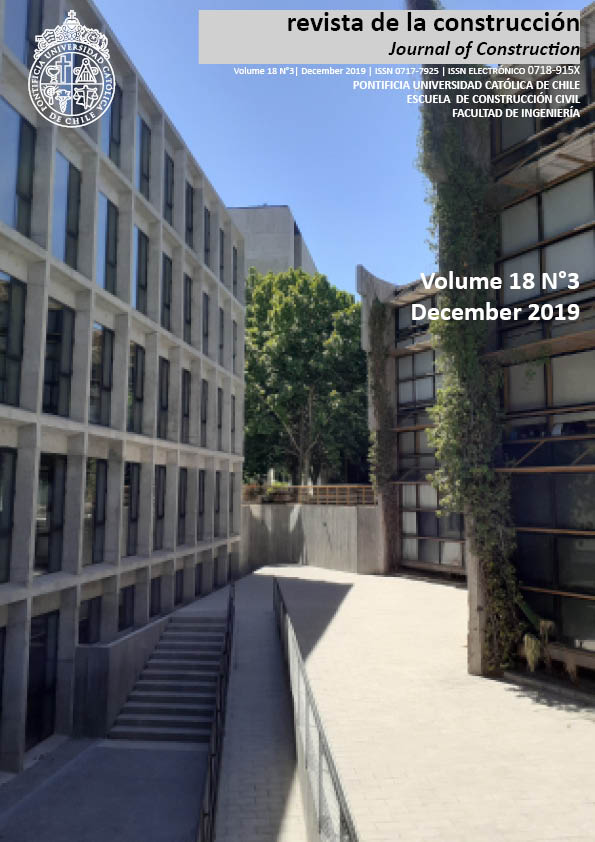Thermal modification of most representative Portuguese wood species. A preliminary study
DOI:
https://doi.org/10.7764/RDLC.18.3.488Keywords:
Thermal modification, experimental evaluation, strength, dimensional stabilityAbstract
The thermal modification has proved to be an effective method to improve the durability of wood elements. Until now, most applications of thermally modified wood have been limited to non-structural applications since the wood’s heat treatment leads to a significant reduction in mechanical performances. However, there is no knowledge about these treatments applied on the wood species more used in Portuguese constructions. In order to evaluate the effect of heat treatment on the wood species of Maritime pine (Pinus pinaster), Eucalyptus (Eucalyptus globulus), Beech (Fagus sylvatica), Acacia (Acacia melanoxylon) and Oak (Quercus faginea), an experimental program consisted of mechanical bending tests and dimensional stability tests (shrinkage, swelling and equilibrium moisture content) was defined. For comparison purposes, all tests were made with test specimens of non-modified and thermally modified wood using four temperature values (200ºC, 240ºC, 260ºC and 300ºC) and three exposed periods (2, 4 and 8 hours). The obtained results show that the behaviour of the studied experimented species was similar to the one of other species already studied in the available literature. It was possible to point out that mechanical properties decrease with the severity of the thermal treatment, while the dimensional stability improved.
Downloads
Downloads
Published
How to Cite
Issue
Section
License

This work is licensed under a Creative Commons Attribution-NonCommercial-NoDerivatives 4.0 International License.





